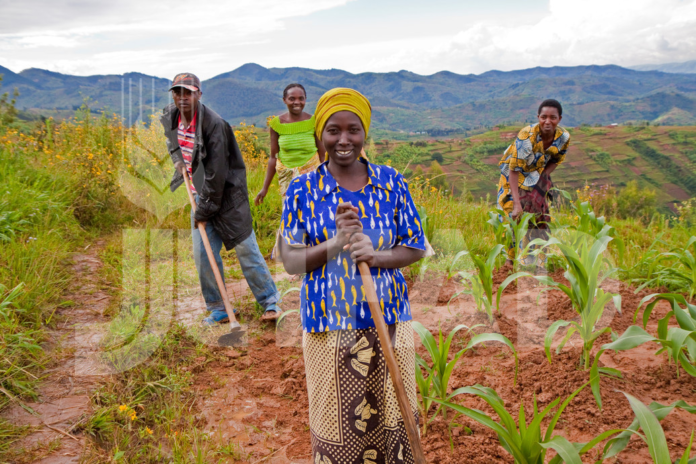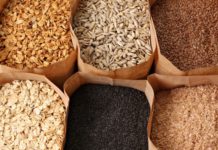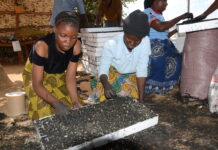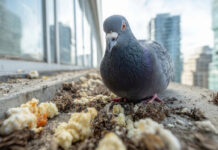The International Fund for Agricultural Development (IFAD) will urge global leaders at COP28 to urgently focus far more attention and funding to the hundreds of millions of small-scale farmers who feed much of the world and are key to global food security and stability. They increasingly struggle to adapt to the escalating impacts of climate change and to produce the nutritious food we all need.
Small-scale farmers produce one third of the world’s food (up to 70 percent in many developing countries) yet their livelihoods and capacity to feed the planet are threatened by changing rain patterns, the deterioration of ecosystems and extreme weather events.
Solutions to help small-scale farmers adapt exist and provide numerous benefits in terms of emissions reduction, improved production and yields and natural resources protection, but require significant investments to implement change at a global scale.
The IFAD delegation, led by President Alvaro Lario, will be engaged during the entirety of COP28, with Lario more specifically participating at the World Climate Action Summit.
To draw attention to challenges and solutions, IFAD is organising 12 high-level events at the Food Pavilion which will feature climate experts, small-scale farmers, youth, and development partners.
IFAD will also launch its White Paper on Climate Adaptative and Water Resilient Food Systems prepared in collaboration with the NDC Partnership. The White Paper makes the business case for significant investments in food systems to ensure they are resilient to climate change and able to address water challenges.
This year, IFAD is partnering with CGIAR, FAO and the Rockefeller Foundation to jointly host the Food Pavilion – a hub for discussing how agrifood systems can be part of the solution to the climate crisis while providing nourishing and sustainable food for the world and promoting decent livelihoods for small-scale farmers and rural communities.
WHEN: 1 – 12 December 2023
WHAT: Events at the Food Pavilion provide an opportunity to interact with small-scale farmers and climate and development experts. Events will span all aspects of climate adaptation and resilience highlighting solutions brought by farmers’ organizations, women, youth and indigenous communities; financing solutions; and the role of the private sector. Consult the full list of IFAD events.
WHERE: Dubai Expo, Blue Zone, Area B7, Building 89. Attend in person or follow live webcasts.
HIGHLIGHTS
1 December, 15:30-16:30 (GMT+4 Dubai) – Bridging the Gap: IFAD’s Role in Climate Finance for Smallholder Farmers.
This event is an opportunity to interact with Alvaro Lario, IFAD President, and Barbara Buchner, Climate Policy Initiative Managing Director. They will present the latest data on climate finance, in particular for the agriculture sector, discuss the significant financial gap for climate-smart agriculture, and share some innovative models developed to address existing barriers to channel climate finance to small-scale farmers and agri-SMEs. IFAD will unveil a new financing model and showcase its role as an assembler of finance. Francis Njoro, a smallholder farmer from Kenya, will share his perspective via video. Webcast
2 December, 11:00-12:00 (GMT+4 Dubai): Launch of the Africa Rural Climate Adaptation Financing Mechanism (ARCAFIM)
The event will launch ARCAFIM, a new private financing mechanism to boost rural climate adaptation in Kenya, Rwanda, Tanzania, and Uganda. ARCAFIM is a large-scale, scalable, public-private and replicable model to channel tailored financing to small food producers and small and medium-sized agribusinesses and improve their livelihoods and climate resilience. ARCAFIM is a public-private partnership with Equity Bank Kenya, with funding from the European Union, Denmark, Finland, the Green Climate Fund, and the Nordic Development Fund (NDF). Webcast
2 December, 15:30-16:30 (GMT+4 Dubai): Rising Tides, Rising Voices: Addressing climate vulnerability in Small Island Developing States (SIDS)
This high-level panel with HRH Tupou VI-King of Tonga, IFAD President Alvaro Lario, Norway Minister for International Development Anne Beathe Tvinnereim, Fiji Assistant Minister for Environment and Climate Change Sakiusa Tubuna, Cabo Verde Minister for Environment and Agriculture Gilberto Correia Carvalho Silva, and New Zealand Ambassador for Climate Change Kay Harrison, will highlight challenges faced by small-scale producers in Small Island Developing States (SIDS) and showcase how IFAD is key to build SIDS’s resilience and adaptation to climate change. Webcast
3 December, 9:30-10:30 (GMT+4 Dubai): Catalyzing Sustainable Food Futures: IFAD’s Partnership with Civil Society Actors
After the keynote speech of HRH King of Lesotho and in presence of IFAD President Alvaro Lario, rural civil society actors (including Indigenous Peoples, farmers’ organizations and young people) will discuss the importance of multi-stakeholder processes to enable diverse community-led actions for a sustainable food future, including ensuring access to climate finance for rural communities. Webcast
4 December, 12:30-13:30 (GMT+4 Dubai): Recipes for Change
Led by renowned Chef Pierre Thiam, this culinary journey will highlight the profound impacts climate change has on local communities and their traditional cuisines while presenting sustainable and locally sourced recipes that demonstrate the potential for small-scale actions for global impact.
4 December, 17:00-18:00 (GMT+4 Dubai): Untangling the nexus between gender and climate
This event will feature one of IFAD’s most innovative initiatives, the Gender Transformative Mechanism (GTM), in the context of climate adaptation, highlighting how women can become agents of change and make a real difference to ensure adaptation in rural areas. IFAD President Alvaro Lario will sign an agreement with representatives of Burkina Faso, Ethiopia and India where the mechanism will be implemented. Funded by the Bill and Melinda Gates Foundation with US$23 million since 2021, GTM is the biggest IFAD facility on gender equality. Webcast
8 December, 15:30-16:30 (GMT+4 Dubai ): Innovate for Change: Empowering Youth in Climate and Agribusiness
Sherrie Silver, IFAD’s Advocate for Rural Youth, will lead the audience through an interactive session fusing dance and storytelling. The session will emphasize the importance of rural youth and young agri-preneurs to combat climate change and drive innovation in agriculture. The potential returns of investing in young people are boundless in terms of food security, poverty reduction, employment generation, as well as peace and political stability. Webcast








